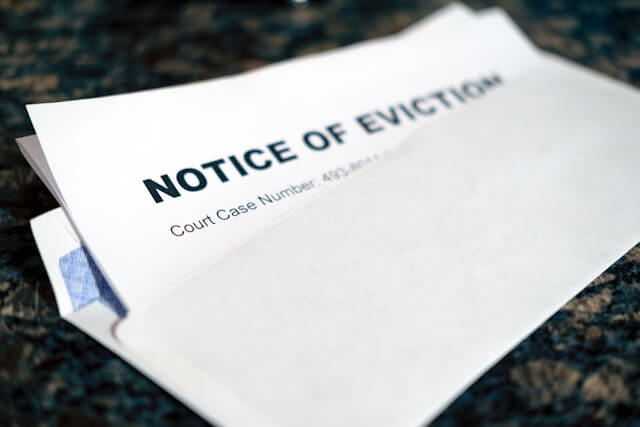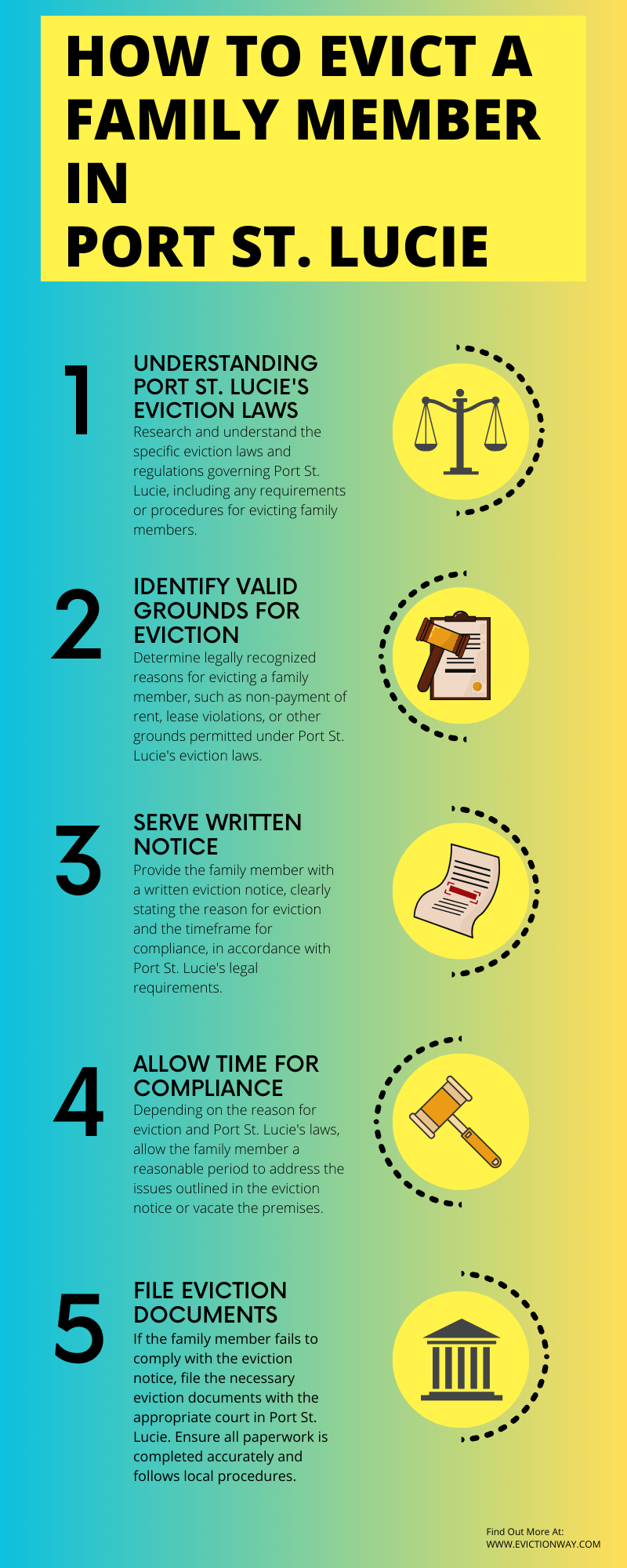Evicting a family member can be a difficult and emotional process, but it may be necessary to protect your rights and property. If you’re facing this situation in Port St. Lucie, this blog will guide you through the steps involved.
We’ll cover the legal process of eviction, including serving notice, filing a complaint, and attending court hearings. We’ll also provide practical tips on how to approach the situation with empathy and respect, while still asserting your rights.
Whether you’re dealing with a difficult relative or a non-paying tenant, this blog will provide you with the information and support you need to navigate this challenging process.

It is important to remember that you have rights as a landlord. If you are being harassed, threatened, or your property is being damaged, you have the right to evict the family member.
How To Evict a Family Member In Port St. Lucie
Evicting a family member is never easy, but it may be necessary to protect your rights and property. If you’re considering evicting a family member in Port St. Lucie, it’s important to understand the legal process and your rights as a landlord.
1. Give Proper Notice
The first step in evicting a family member is to give them proper notice. In Florida, you must give at least 15 days’ written notice to vacate the property. The notice must be delivered in person or by certified mail, return receipt requested.

2. File an Eviction Lawsuit
If your family member does not vacate the property after receiving the notice, you will need to file an eviction lawsuit. The lawsuit must be filed in the county court where the property is located.
You will need to provide the court with a copy of the notice you gave to your family member, as well as any other evidence that supports your claim for eviction.
3. Attend the Eviction Hearing
Once you have filed the eviction lawsuit, you will need to attend a hearing. At the hearing, the judge will hear evidence from both sides and make a decision about whether or not to evict your family member.
4. Obtain a Writ of Possession
If the judge rules in your favor, you will be issued a writ of possession. This document gives the sheriff the authority to remove your family member from the property.
5. Enforce the Writ of Possession
The sheriff will typically give your family member a few days to vacate the property before enforcing the writ of possession. If your family member does not leave by the deadline, the sheriff will remove them from the property and change the locks.
6. Seek Legal Help
Evicting a family member can be a complex and stressful process. If you are considering evicting a family member, it is important to seek legal help. An experienced attorney can help you understand your rights and guide you through the eviction process.

Additional Resources for Port St. Lucie eviction help:
15 days eviction notice Port St. Lucie
In Port St. Lucie, a 15-days notice to quit for non-payment of rent is a document used by landlords to inform tenants they’ve missed rent. It gives the tenant 15 days from the date they receive the notice to do one of two things:
- Pay the rent in full
- Vacate the property
If the tenant doesn’t comply within the 15 days, the landlord can then proceed with filing an eviction lawsuit in court.
You can download 15 days eviction notice Port St. Lucie here.
How Much Does it Cost to Evict a Family Member in Port St. Lucie?
The cost of evicting a family member in Port St. Lucie will vary depending on the circumstances of the case. In some cases, you may need to pay for storage fees if the family member’s belongings are removed from the property, there are some general costs that you can expect to incur.
| Item | Estimated Cost (USD) |
|---|---|
| Filing fee for eviction notice | $185 – $400 |
| Attorney fees | $500 – $5,000+ |
| Process serving fee | $10 – $50 per individual |
| Sheriff’s service fee for writ of possession | $40 |
| Miscellaneous (e.g., copying, postage) | $25 – $100 |
FAQs: Evicting a Family Member in Port St. Lucie
Here are some of the most frequently asked questions about evicting a family member in Port St. Lucie:
What are the grounds for evicting a family member in Port St. Lucie?
In Port St. Lucie, you can evict a family member if they have violated the terms of their tenancy, such as by not paying rent or causing damage to the property. You can also evict a family member if they have engaged in criminal activity or have otherwise made the home unsafe for you or other occupants.
What is the process for evicting a family member in Port St. Lucie?
The process for evicting a family member in Port St. Lucie is similar to the process for evicting any other tenant. You must first give the family member a written notice to vacate the property.
The notice must state the reason for the eviction and the date by which the family member must leave. If the family member does not leave by the deadline, you can file a formal eviction action with the court.
What are the defenses to an eviction action in Port St. Lucie?
There are several defenses that a family member can raise in an eviction action. These defenses include:
- The family member has a valid lease that has not expired.
- The family member has not violated the terms of their tenancy.
- The eviction is retaliatory.
- The eviction is discriminatory.

What are the consequences of evicting a family member in Port St. Lucie?
Evicting a family member can have serious consequences, both for the family member and for you. The family member may lose their home and their belongings. They may also have difficulty finding a new place to live. You may also experience emotional distress and financial hardship as a result of the eviction.
What are some tips for evicting a family member in Port St. Lucie?
If you are considering evicting a family member, there are a few things you can do to make the process easier. First, try to talk to the family member and see if you can resolve the issue without going to court. If you are unable to resolve the issue, you should contact an attorney to discuss your options.
Related:
How to Evict a Family Member in Wisconsin
